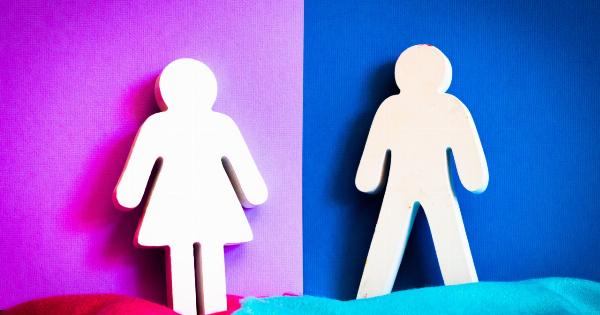Depression is a serious mental health condition that affects millions of people worldwide. While it can impact individuals of any gender, age, or background, research suggests that certain factors may increase the risk of depression in men.
In this article, we will explore who is at a higher risk for male depression and delve into some of the contributing factors.
1. Age
Age plays a significant role in determining the risk of depression in men. According to studies, middle-aged men are more likely to experience symptoms of depression than their younger counterparts.
The stressors associated with midlife, such as career changes, financial burdens, relationship issues, and the physical changes that come with aging, can contribute to increased vulnerability to depression.
2. Genes and Family History
Debra, a mental health expert, notes that genetics and family history are also important risk factors for male depression. Research suggests that individuals with a family history of depression are more likely to develop the condition.
Furthermore, certain genetic variations have been linked to an increased susceptibility to depression in men.
3. Relationship and Marital Problems
Difficulties in relationships and marital problems can significantly increase the risk of depression in men.
Conflicts, communication breakdowns, and feelings of loneliness or neglect within a romantic partnership can contribute to the development of depressive symptoms. This emphasizes the importance of addressing and resolving relationship issues to reduce the risk of male depression.
4. Work-related Stress
Work-related stress is a major risk factor for depression in both men and women.
However, certain professions that demand high levels of stress and have limited control, such as first responders, healthcare providers, and military personnel, may place men at a higher risk. The pressure to meet deadlines, long working hours, and exposure to traumatic events can all contribute to depressive symptoms.
5. Social and Cultural Factors
Social and cultural factors can also impact the risk of male depression. Societal expectations that encourage men to suppress emotions, maintain a stoic facade, and avoid seeking help can exacerbate depressive symptoms.
The fear of being perceived as weak or vulnerable often prevents men from seeking the support they need, leading to increased feelings of isolation and hopelessness.
6. Substance Abuse
Substance abuse is strongly linked to an increased risk of depression in men. Many individuals turn to drugs or alcohol as a means of coping with emotional pain or to self-medicate their depressive symptoms.
However, this exacerbates the condition and can lead to a vicious cycle of addiction and worsening depression. Addressing underlying substance abuse issues is crucial in managing male depression effectively.
7. Physical Health Conditions
Physical health conditions can also contribute to the risk of depression in men. Chronic illnesses, disabilities, or conditions that cause chronic pain can all increase the likelihood of developing depressive symptoms.
The emotional toll of struggling with physical limitations and the impact on one’s quality of life can significantly affect mental well-being.
8. Traumatic Experiences
Experiencing trauma or significant life events, such as the loss of a loved one, divorce, or abuse, can increase the risk of depression in men.
The emotional toll of these experiences can be overwhelming and contribute to the development of depressive symptoms. Seeking therapy or counseling to process and cope with these traumatic events is essential in reducing the risk of male depression.
9. Financial Difficulties
Financial difficulties can be a major stressor that increases the risk of depression in men. The pressure to provide for oneself or one’s family, unemployment, debt, and socioeconomic disparities can all contribute to depressive symptoms.
Seeking professional assistance to manage financial difficulties and exploring available resources can go a long way in preventing or addressing male depression.
10. Lack of Social Support
A lack of social support is another risk factor for male depression. Men who feel isolated or have limited social connections are more vulnerable to developing depressive symptoms.
Building a strong support network, engaging in social activities, and seeking professional help can all help reduce the risk of depression in men.
In Conclusion
While depression does not discriminate, there are certain factors that may increase the risk of depression in men.
Age, genetics, relationship problems, work-related stress, social/cultural factors, substance abuse, physical health conditions, traumatic experiences, financial difficulties, and a lack of social support all play a role in the development of male depression. Recognizing these risk factors and taking proactive steps to address them can help minimize the impact of depression in men and promote overall well-being.



























